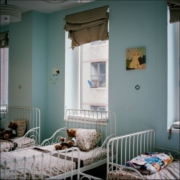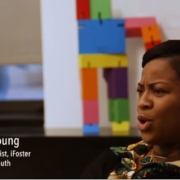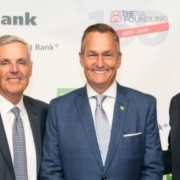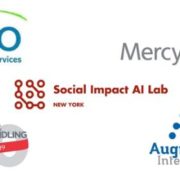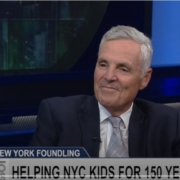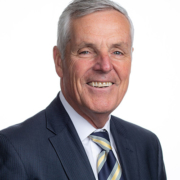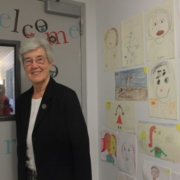 On Wednesday, October 2, The New York Foundling celebrated our milestone 150th anniversary with a show-stopping gala at The Plaza. Over 500 trustees, supporters, corporate partners, staff, and other friends of The Foundling joined us to reflect on our organization’s past, present, and future. The event raised over $1.1 million for The Foundling’s life-changing programs!
On Wednesday, October 2, The New York Foundling celebrated our milestone 150th anniversary with a show-stopping gala at The Plaza. Over 500 trustees, supporters, corporate partners, staff, and other friends of The Foundling joined us to reflect on our organization’s past, present, and future. The event raised over $1.1 million for The Foundling’s life-changing programs!
As our photo gallery shows, it was a special evening.
Hosted by NY1 anchor Pat Kiernan, the event commemorated The Foundling’s 150-year presence and lasting impact on the New York community.

TV personality Seth Meyers provided a virtual welcome, and our President & CEO Bill Baccaglini spoke about our history and current initiatives. An array of speakers, including Sr. Donna Dodge of the Sisters of Charity, Foundling Trustees Bob King and Nadia Owens, and Dorm Project participant Marangely, provided insight and context on The Foundling’s incredible legacy and impact. We honored Gregory B. Braca, President & CEO of TD Bank – a valuable partner with deep personal connections to The Foundling.
Two commemorative videos – covering our history and current impact – showed The Foundling’s long legacy of trusting in the power and potential of people.
The evening was capped off with a lively program auction, led by Ruth Maudlin, which allowed the crowd to support vital Foundling programs, and an online auction – featuring exclusive items and experiences – was introduced.
The Foundling owes its success over the past 150 years to our supporters and community – thank you for being part of our legacy.
While our 150th Anniversary Gala might be over, the fun continues! Here are some ways to celebrate with us:
View more photos from the Gala
Follow us on social media: Twitter, Facebook, or Instagram
Watch our new videos: The History of the New York Foundling & Program Overview
Explore Volunteer Opportunities

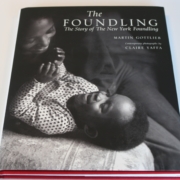
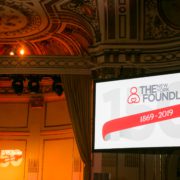
 On Wednesday, October 2, The New York Foundling celebrated our milestone 150th anniversary with a show-stopping gala at The Plaza. Over 500 trustees, supporters, corporate partners, staff, and other friends of The Foundling joined us to reflect on our organization’s past, present, and future. The event raised over $1.1 million for The Foundling’s life-changing programs!
On Wednesday, October 2, The New York Foundling celebrated our milestone 150th anniversary with a show-stopping gala at The Plaza. Over 500 trustees, supporters, corporate partners, staff, and other friends of The Foundling joined us to reflect on our organization’s past, present, and future. The event raised over $1.1 million for The Foundling’s life-changing programs!
